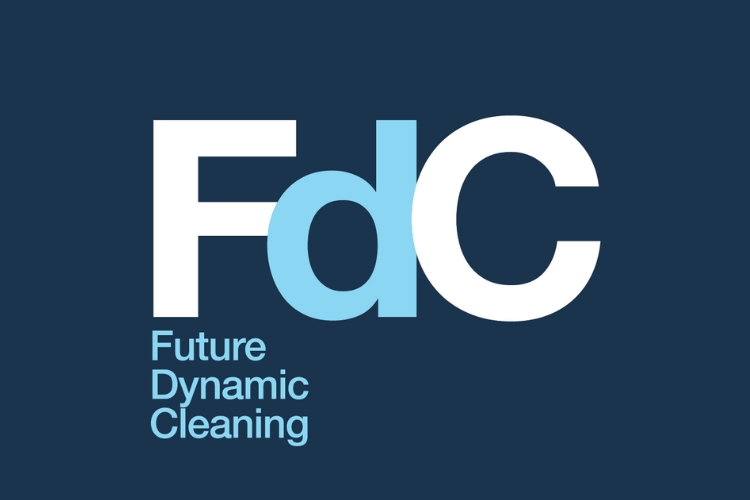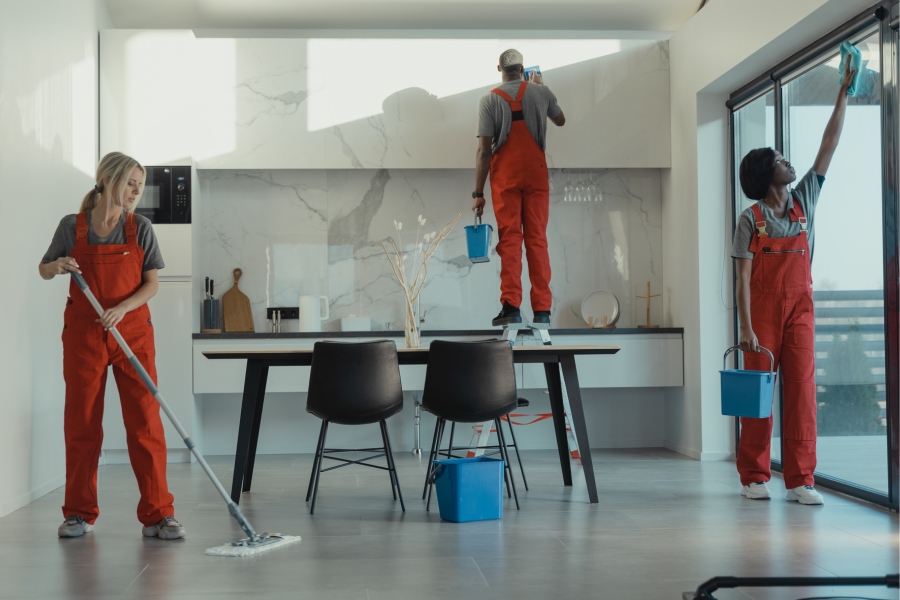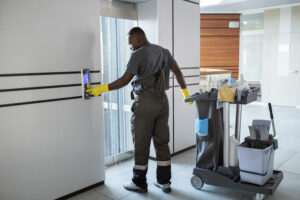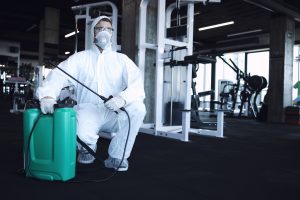If you’ve ever wondered what is considered commercial cleaning, the answer is simple: it’s professional cleaning done for businesses, facilities, and public spaces—not homes. From daily janitorial work to deep sanitizing, commercial cleaning plays a key role in keeping workplaces safe, presentable, and compliant.
Defining Commercial Cleaning
Basic definition: cleaning services provided for businesses and public facilities
Commercial cleaning covers a wide range of services designed to keep business environments clean, safe, and operational. It includes everything from regular janitorial tasks to specialty services like floor maintenance and disinfection.
How it differs from residential cleaning
Residential cleaning focuses on personal living spaces—apartments, houses, and condos. Commercial cleaning, on the other hand, involves larger spaces, more foot traffic, stricter regulations, and different cleaning protocols, especially for healthcare and food service environments.
Who uses commercial cleaning services
Commercial cleaning companies are used by offices, banks, schools, hospitals, warehouses, restaurants, and retail stores—essentially any business or organization with a physical location that requires routine cleaning and maintenance.
Types of Commercial Cleaning Services
Janitorial Services
- Daily or nightly cleaning including trash removal, restroom sanitation, vacuuming, and floor care
- Ideal for maintaining a clean baseline in office buildings, schools, and professional spaces
Deep Cleaning and Disinfection
- Scheduled sanitizing for industries with high hygiene requirements, such as healthcare, retail, or food service
- Focused on disinfecting high-touch surfaces like doorknobs, desks, phones, and public counters
- Helps reduce the spread of illness and maintain safety compliance
Floor and Carpet Care
- Services include carpet shampooing, tile scrubbing, grout cleaning, stripping and waxing of VCT floors
- Especially important in facilities with heavy foot traffic like banks, commercial offices, and schools
- Keeps flooring looking sharp while extending its lifespan
Window and Glass Cleaning
- Includes both interior and exterior window washing
- Essential for storefronts, showrooms, and buildings with lots of natural light or glass walls
- Helps businesses present a clean and polished look to customers
Specialty Cleaning
- Medical-grade cleaning for hospitals, dental offices, and clinics to meet OSHA and CDC standards
- Post-construction cleanup to remove dust, debris, and leftover materials in newly built or renovated spaces
- Industrial cleaning for warehouses, factories, and equipment-heavy facilities requiring heavy-duty cleaning methods
Industries That Rely on Commercial Cleaning
A big part of answering what is considered commercial cleaning? is knowing where it’s used. Commercial cleaning isn’t just for office buildings—it spans nearly every industry that serves the public or maintains a professional space.
Healthcare facilities and dental offices
These environments require strict sanitization routines. Commercial cleaners in this space are trained to use hospital-grade disinfectants and follow OSHA and CDC protocols to prevent the spread of illness.
Corporate offices and banks
Clean desks, restrooms, and lobbies reflect professionalism. Commercial cleaning keeps high-traffic areas tidy, disinfects shared surfaces, and creates a workplace that clients and employees can trust.
Schools, universities, and daycare centers
With so many students and staff in close quarters, routine disinfection is crucial. Commercial cleaning services in education help reduce germs, prevent absenteeism, and maintain clean learning environments.
Restaurants and hospitality
Commercial cleaners handle dining areas, kitchens, restrooms, and front-of-house spaces. Their work helps meet health code requirements and creates a positive guest experience.
Retail stores and shopping centers
In retail, clean floors, fitting rooms, and registers make a big impact. Regular cleaning services support customer comfort and ensure compliance with sanitation expectations.
Industrial and warehouse spaces
These facilities need heavy-duty cleaning to remove debris, manage spills, and keep machinery areas safe. Specialized cleaning helps prevent accidents and keeps operations running smoothly.
Key Benefits of Commercial Cleaning
If you’re still asking what is considered commercial cleaning, it’s not just about scrubbing floors—it’s about maintaining an environment that’s safe, compliant, and welcoming.
Professional appearance and first impressions
Whether you’re running a law firm or a gym, a clean space makes people feel confident in your business. First impressions start with what people see, smell, and feel when they walk through the door.
Health and safety compliance
Commercial cleaning companies use products and techniques that align with OSHA, CDC, and industry-specific standards. This ensures you’re not just clean—but compliant.
Improved indoor air quality
Dust, allergens, and airborne particles build up quickly in busy spaces. Regular commercial cleaning—especially with HEPA vacuums and microfiber dusting—helps improve air quality and reduce respiratory issues.
Higher employee satisfaction and productivity
No one wants to work in a cluttered or dirty environment. Clean spaces help staff focus, reduce sick days, and feel better about where they work.
How Often Is Commercial Cleaning Needed?
Understanding what is considered commercial cleaning also means knowing how often it should happen. The answer depends on the type of business and how much foot traffic you receive.
Daily, weekly, and monthly schedules
- Daily: High-traffic areas like restrooms, lobbies, and breakrooms
- Weekly: Dusting vents, deeper floor care, wiping down glass and tech equipment
- Monthly: Carpet shampooing, high dusting, deep disinfection of less-used areas
Factors that influence frequency
- Foot traffic: The more people coming in and out, the more often you need cleaning
- Industry: Medical facilities and food service require more frequent and specialized cleaning
- Building size: Larger spaces may need daily teams, while smaller ones can be serviced less often
Example schedules by industry
- Medical clinic: Daily disinfection, weekly equipment sanitizing, monthly deep clean
- Corporate office: Daily janitorial, weekly glass and floor care, monthly carpet cleaning
- Retail store: Daily trash and surface cleaning, weekly restroom deep clean, monthly backroom reset
Choosing the Right Commercial Cleaning Company
When figuring out what is considered commercial cleaning, it’s just as important to know who should be doing the work. Not all cleaning companies are built the same. Choosing the right one means finding a partner that understands your industry, respects your space, and delivers consistent results.
Experience and industry knowledge
Look for a company that has experience working in your type of facility—whether it’s a medical office, bank, school, or warehouse. Industry knowledge ensures they understand specific cleaning needs and compliance standards.
Trained staff with background checks
You’re trusting a cleaning team with your property, equipment, and sometimes sensitive areas. Make sure the staff is professionally trained, reliable, and fully background-checked—especially in environments like banks or healthcare facilities.
Use of EPA-approved products and modern tools
The right company will use EPA-registered disinfectants and commercial-grade equipment like HEPA vacuums and auto scrubbers. This ensures your space is cleaned effectively and safely, every time.
Flexibility and customizable service plans
Your cleaning needs may shift throughout the year. A professional commercial cleaning company should offer flexible scheduling—daily, weekly, or monthly—and create a plan that fits your operations without disrupting your business.
Final Thoughts: Why Commercial Cleaning Matters
So, what is considered commercial cleaning? It’s more than just wiping surfaces—it’s a critical service that supports your business’s reputation, safety, and long-term success.
- Routine cleaning protects your investment, keeps employees healthy, and impresses customers
- Clean environments are more productive, welcoming, and compliant with industry standards
- Don’t cut corners—invest in a cleaning solution that works as hard as you do
Looking for a commercial cleaning company that gets the job done right? Contact FDCNJ today to request a quote or build a custom cleaning plan for your facility.




